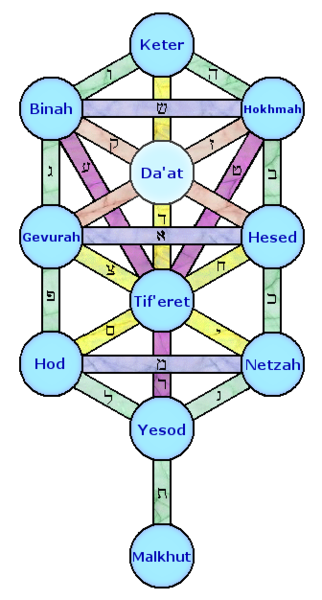Because of several pastoral emergencies and other duties I have fallen behind in my posts. I didn't want to skip 3 Epiphany since it has played a pivotal role in how I understand Jesus Christ as someone who was quite steeped in the mystical tradition. The reading describes Jesus as he begins his public ministry -"The time is fulfilled, and the kingdom of God has come near; repent, and believe in the good news (Mark 1:15 NRSV)." Something worth noting is that neither the phrase "Kingdom of God" or "Kingdom of Heaven" appears anywhere in the Old Testament. If you refer back to my post on Levels of Interpretation, you'll see that the Kingdom of God can neither be understood from the simple or the allusion level. To understand it we need to look deeper into the Midrash or Kabbalah. According to the Midrash, Kingdom could refer to the Messianic Age, when the world would be set right and the righteous would have the opportunity to study Torah all day without interruption (Encyclopedia Britannica). Of course looking at history we can say this hasn't happened. This is one of the reasons for the Jewish rejection of Jesus as the Messiah - his coming didn't usher in the era hoped for. Christians on the other hand, acknowledge that this Kingdom had its beginning in Jesus' first coming, and will come to completion when he comes again. Personally I believe that at that moment the transformation will be so profound that everything that divides us will be moot.
On a deeper level however, The Kingdom of God can mean something more. In the Kabbalah, the tenth and last sefirot is named Malchut, which is the Hebrew word for Kingdom. Malchut is the receptacle for the energy of all the other Sefirot. It's like light shining through a prism. The prism separates the light into its spectrum so that we can examine all of the different colors, one by one. In the bottom sefirot, Yesod and Malchut, the light is put back together and sent into our world.

Mind you the is only a tool to help understand an infinite God. At the same time, it gives us language to describe some very deep spiritual truths.
Throughout Israel's early history, they were led by God's presence. Whether it was in the wilderness, or in the early days of Solomon's temple, there were some very visible signs that God was there. By the time of the first exile these experiences were long gone and people did not have the same access to the divine. When Jesus said that the Kingdom of God, or if he were speaking Hebrew Malchut, has drawn near, it was a concealed way of saying that God's presence was very close to humanity again. It's as if all that energy were concealed from us so much so that God seemed very far away. Now it was returning, God was coming back and could be a tangible part of our lives.
With God being so close, we can examine other aspects of God's qualities - other sefirot to see the being who we are made in the image though. We can examine qualities like Chesed and Gevurah - love and justice, and see how they interact and combine to form Tif'eret - compassion. We can see how a solid foundation (Yesod) leads ultimately a creative force that validates the dignity of all creatures. Previously this was all concealed from us, but because of Jesus we can behold it right in front of our eyes. That's why he called us to repent - pay attention because something special is here. The Kingdom of God (Malchut) has drawn near.
On a deeper level however, The Kingdom of God can mean something more. In the Kabbalah, the tenth and last sefirot is named Malchut, which is the Hebrew word for Kingdom. Malchut is the receptacle for the energy of all the other Sefirot. It's like light shining through a prism. The prism separates the light into its spectrum so that we can examine all of the different colors, one by one. In the bottom sefirot, Yesod and Malchut, the light is put back together and sent into our world.
Mind you the is only a tool to help understand an infinite God. At the same time, it gives us language to describe some very deep spiritual truths.
Throughout Israel's early history, they were led by God's presence. Whether it was in the wilderness, or in the early days of Solomon's temple, there were some very visible signs that God was there. By the time of the first exile these experiences were long gone and people did not have the same access to the divine. When Jesus said that the Kingdom of God, or if he were speaking Hebrew Malchut, has drawn near, it was a concealed way of saying that God's presence was very close to humanity again. It's as if all that energy were concealed from us so much so that God seemed very far away. Now it was returning, God was coming back and could be a tangible part of our lives.
With God being so close, we can examine other aspects of God's qualities - other sefirot to see the being who we are made in the image though. We can examine qualities like Chesed and Gevurah - love and justice, and see how they interact and combine to form Tif'eret - compassion. We can see how a solid foundation (Yesod) leads ultimately a creative force that validates the dignity of all creatures. Previously this was all concealed from us, but because of Jesus we can behold it right in front of our eyes. That's why he called us to repent - pay attention because something special is here. The Kingdom of God (Malchut) has drawn near.


Comments